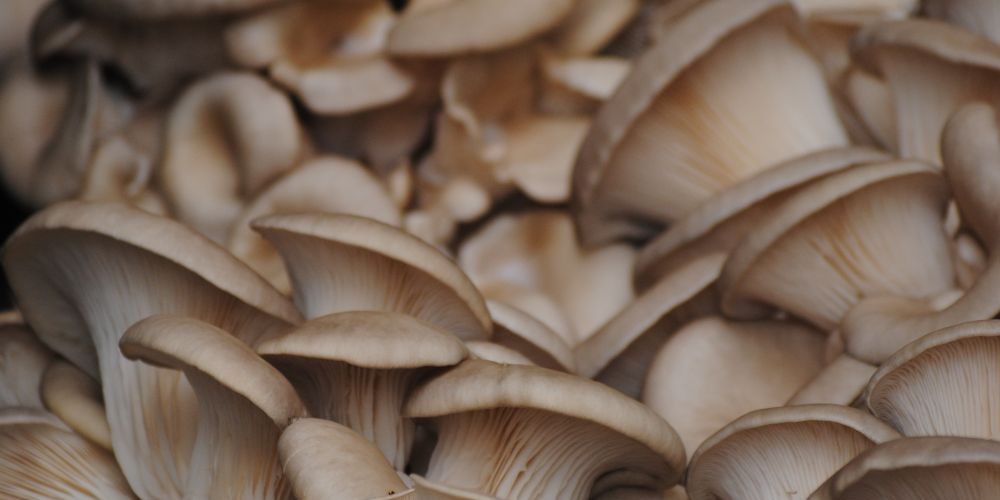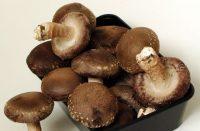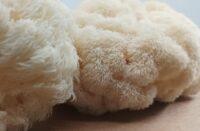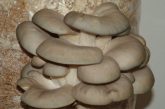Mushroom dishes are mainly loved for their flavour and aroma. The taste of oyster (Pleurotus) mushroom dishes and the seasoning value of mushrooms are considered by most people to be superior to that of champignons. In Germany, the most enthusiastic fans call them ‘veal mushrooms’.
It would of course be an exaggeration to consider the oyster mushroom as equivalent to meat, since the protein content of mushrooms is much lower and the biological value of their proteins is somewhat inferior to that of meat.
Biological values
The oyster mushroom contains 15-25% protein, 1-2% fat and 6-10% mineral salt in the dry matter. Majority of the mineral salts are potassium and phosphorus. The remainder is made up of carbohydrates and other substances, of which indigestible fibre accounts for a significant proportion. Protein and mineral salt content of cultivated oyster mushroom is lower than that of champignons. This is probably due to the fact that its substrates have a significantly lower ash content than the compost of white button mushroom.
Mushrooms are extremely rich in certain vitamins and can therefore be called “vitamin bombs”. These are vitamins B1, B2, niacin, folic acid and pantothenic acid. They also contain significant amounts of vitamin D. It is worth mentioning that the consumption of 10 dkg of fresh mushrooms provides 40% of an adult’s daily requirements of vitamin B2 and niacin, 25% of folic acid, 23% of pantothenic acid and 17-20% of vitamin B1.
As with other mushrooms, the Pleurotus mushroom can be an important part of a healthy diet. Its intestinal content makes it an excellent dietary supplement for dieters, diabetics, gout sufferers and people with high blood pressure. Its high indigestible fibre content reduces the risk of colon cancer. However, its use in the diet of people with kidney disease is limited due to its high potassium content.
Health protective effect
In addition to the general health benefits of Pleurotus mushroom, we must also highlight their specific medicinal properties. Japanese researchers have successfully reduced the growth rate of certain tumours by using an aqueous extract of oyster mushroom. Animal studies have shown that dried, ground mushroom used as animal feed have a cholesterol-lowering effect. In the Czech Republic, an anti-high blood cholesterol extract was produced from the Pleurotus mushroom’s fruiting body. Russian researchers used the mushroom to make an antibiotic called pleurotin.
The oyster mushrooms can be used to reduce cholesterol as follows. Consume 3-9 g of dried mushrooms per day, which can be swallowed in capsules or mixed into liquids (hot water, tea, soup, etc.) or food. For fresh mushrooms, consume ten times the amount of dried mushrooms, 30-90 g per day.
Authors: Dr. Csaba Hajdú – József Szarvas












